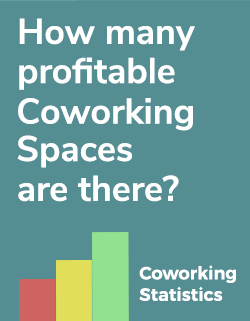Coworking Spaces That Implemented The Blockchain Ecosystem
There are many operators driving blockchain forward. Full Node is a coworking space in Berlin built specifically as an anchor for blockchain companies. The space arose from collaboration between two companies seeking community: Gnosis and Tendermint (the latter responsible for developing a network of independent parallel blockchains known as ‘Cosmos’). The workspace facilitates curation of blockchain infrastructure and their physical environment is about to be utilized for experimentation as they trial a series of blockchain-based services. By working with a specialist in blockchain infrastructure, Full Node is exploring prototype opportunities and engagement with smart devices.
Kei Kreutler, Creative Director & Community at Gnosis, explains how Full Node’s meeting, event and workspace is “founded to unite and ground the growing blockchain community. The space can host technical workshops which contribute to the development of blockchain as a mature technology, delivering on the promises it’s made.”
Full Node may be seeking more space in Berlin and beyond as they experienced high demand for desks. Kei emphasises how “members are attracted to the community as a valuable development resource rather than just a workspace. Many blockchain companies are working more collaboratively than competitively and seemingly accelerating faster than many industries. Berlin could become a ‘Blockchain Capital’ due to its unique interdisciplinarity and diversity of technology sectors.” Given that blockchain was built on the premise of global accessibility, Full Node hopes to partner with blockchain coworking spaces worldwide, potentially in locations such as Tokyo and San Francisco.
Melbourne, Shanghai and Lithuania are also home to the world’s first non-profit blockchain community hub and coworking space: The Blockchain Centre. These locations were handpicked as strategic use cases for blockchain applicability. Lithuania’s government, for example, announced in 2018 that they were joining Hyperledger - an open source collaborative effort created to advance cross-industry blockchain technologies. The Blockchain Centre therefore promotes blockchain education through its knowledge hub and advanced workshops. It also encourages adoption of the technology by providing resources to entrepreneurs and startups. The centres connect schools, universities, corporations, city councils and all areas of local, federal and overseas governments to create more opportunities for blockchain development.
Tyrone Blode, Marketing and Commercial Manager, states “the centre offers consultation services to members to discuss Initial Coin Offerings (ICOs), security and hardware devices for cryptocurrency traders. Most of our members are creating businesses with high levels of transparency, allowing them to build trust with investors. Our members have grown in funding and team size faster than those in many other other industries. For us to drive these companies forward and establish ourselves as the pivotal voice in the blockchain community, it’s highly important for us to retain a strong relationship with the government.” Tyrone also observes that as members grow, they often give back to the community with impact from their own businesses. Large organisations and levels of government educated at coworking events may also draw upon members for services and expertise.
Beyond the operators creating blockchain spaces and trialling prototypes, there’s an operator creating cryptocurrencies specifically for shared workspace. Primalbase makes it possible to share, sell or rent shared workspace using digital tokens called PBT. Primalbase CEO, Ralph Manheim, states that the company “brings the future of work closer by building a solid infrastructure for the tech industry in the most inspiring environment. Our digital tokens and workspaces ultimately facilitate efficiency of the working process. Through our investment in such infrastructure , our token holders benefit from shared workspace in a way that is uniquely effective. There’s a lot of creative interaction in our communal areas.”
Moving Forward
The coworking industry has clearly made a strong start to advancing blockchain application through education, facilitation, collaboration and creation. The question is: how far and how fast can curators achieve widespread use amongst operators for transaction and facilities management? Notably, the blockchain movement seems to involve a distinct shift in focus from ‘community-based ecosystems’ to solid ‘technology-based infrastructures’, requiring support from corporate, government and institutional bodies. With coworking history rooted in technology and start-ups, we are yet to see if operators will one day fully utilize today’s largest technological innovation - for which they are highest on the pecking order for effective application.








